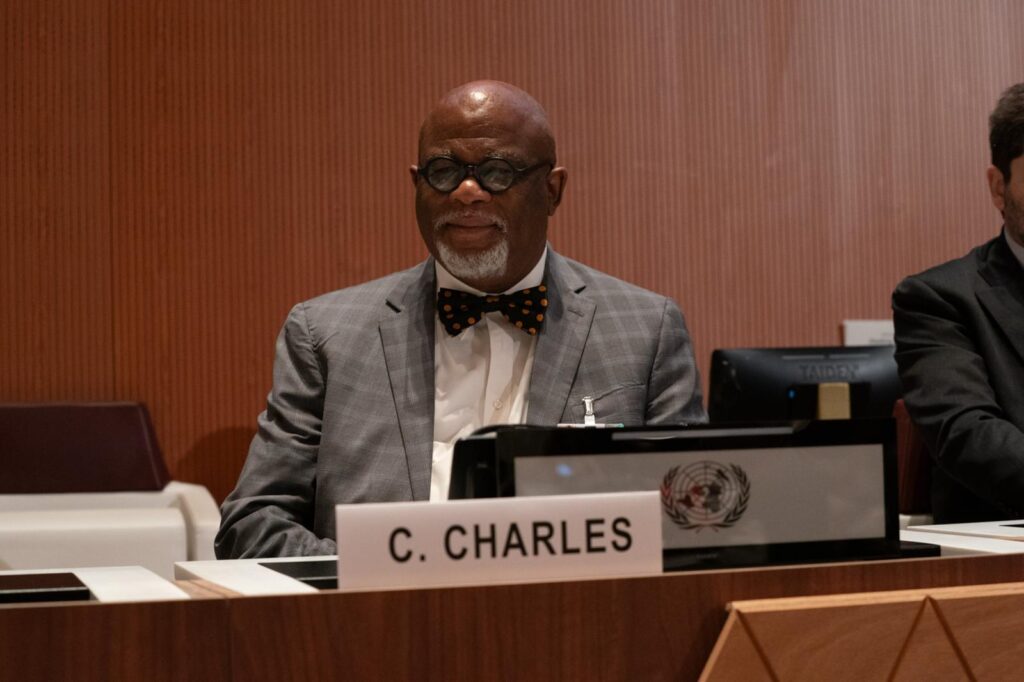When it comes to climate change, the Caribbean doesn’t need a warning—it’s already feeling the effects. From rising temperatures to disappearing shorelines and sudden droughts, the signs are everywhere.
But at this year’s AI Research Conference, a powerful panel titled AI and Climate Change: Building Resilience Across Sectors will explore how artificial intelligence is quietly becoming one of the region’s most promising tools in the fight for a livable future.
Moderated by Dr Chris Jones, the session brings together three experts working on different frontlines of the climate crisis—weather, agriculture, and infrastructure. And while their areas of focus may differ, they’re united by a single truth: AI can help us prepare better, respond faster, and build smarter.

Reading the Skies, Saving Lives
Dr David Farrell, who heads the Caribbean Institute for Meteorology and Hydrology, knows how unpredictable the weather has become. For years, meteorologists in the region have struggled to keep pace with the rapid shifts in climate. But now, AI is changing the game.
By crunching huge amounts of satellite data, rainfall patterns, and ocean temperatures, machine learning models can spot early signs of hurricanes, droughts, or flash floods—sometimes days earlier than traditional forecasts. “The earlier we can alert communities, the more lives we can save,” says Dr Farrell. “And that’s where AI gives us the edge.”
Farming Smarter, Not Harder
On the agricultural side, Dr Cynthia Zeng, an Assistant Professor at NYU’s Abu Dhabi campus, is looking at how AI can help farmers grow more with less. In the Caribbean, where food imports are high and droughts are getting longer, local farming is both a necessity and a challenge.
Using AI-powered tools, farmers can get real-time advice on what to plant, when to water, and how to handle pests or soil issues. “This isn’t about replacing farmers,” Dr. Zeng explains. “It’s about giving them better tools to protect their crops and their incomes.”
But she’s also careful to highlight the importance of access. “Technology won’t make us more resilient if only a few people can afford to use it. We need to make sure the smallest farms get these benefits too.”
Protecting Our Health and Roads
Dr Sandeep Maharaj, Director of the School of Pharmacy at UWI, brings a different but equally urgent view. His focus is on how climate shocks disrupt the systems we depend on—like getting medicine to clinics or keeping roads safe after a storm.
AI, he says, can help governments spot weak points in their supply chains or road networks before disaster strikes. “If we can map risk in advance, we can plan better and respond quicker,” Dr Maharaj says. “It’s not just about reacting to storms—it’s about preparing systems to hold strong when they come.”
Moving From Talk to Action
This panel isn’t just about tech—it’s about using what we have, right now, to protect the region’s future. AI isn’t magic, and it won’t stop climate change on its own. But in the hands of committed experts and communities willing to adapt, it just might help us stay one step ahead.
The 2025 UWI Five Islands Artificial Intelligence Conference will be held June 23-24.
Registration and the full programme details are available at fiveislandsaiconference.com.





Why are we trying to “fight” the natural processes of the planet?